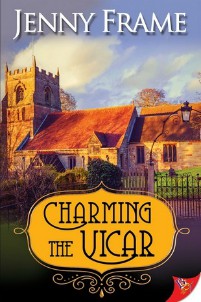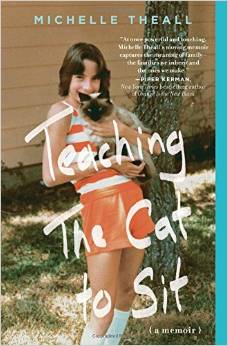Charming the Vicar is the sequel to Courting the Countess and tells the story of the ultra femme and sexy af Bridget Claremont, the vicar of Axedale. Jenny Frame has been my go-to lesbian content author since I read Royal Rebel and this is my favourite book she’s written so far. Her characters are always adorable wholesome lesbians, which are my absolute end-all kink and their love stories never fail to induce at least a week’s “book high”.
Bridget is used to having to guide lost sheep to their flock, but this one might just be out of her reach. Finnian “Finn” Kane is a famous magician and an even more famous atheist who has spent her life exposing “fake” evangelists and psychics. A confident playboy butch if there ever was one, Finnian is hiding away in Axedale after a personal tragedy and absolutely refuses to entertain Bridget and her “collar” under any terms.
I really loved both characters and their stories. Bridget’s struggles with the church hierarchy as an openly lesbian vicar is very realistic yet it doesn’t venture into tragedy as most novels might be wont to do. She may be almost widely accepted and loved in Axedale, barring a few, but is haunted by her previous life, even more so as her need to help Finn open up and cope with her grief becomes a lot more than just her day job. We also find out a lot more about Bridget’s history and how she came to be the person she is.
Finn starts off as this skittish, damaged ‘deer’ who has suffered deep loss and is instantly suspicious of church figures, trying to run Bridget off many times, but Bridget is also no ordinary ‘herder’ and is up for the challenge. They slowly fall in love and embrace other sides of their relationship and personalities they’ve given up. For Frame’s characters, the struggle with their faith in love and faith in God is two sides of the same coin and hence constructs a genuinely empathetic tale of two scarred people who are facing a relatable struggle in faith in love of all kinds.
For anyone who’s read Courting the Countess, Sam, the awesome farmer butch, also makes an appearance and is funny and supportive as ever. I hope we get a book of her falling in love with a cute sweet femme soon. Also, a shout-out: for the second installment of Lady Hildegaard’s adventures. This story was especially awesome for this poor lesbian looking for a dashing knight to save her.
The ending was wrapped up in a particularly pretty little bow, but for a topic which is as sensitive as the Catholic Church’s views of LGBT vicars and priests and how easily it could have gone wrong in a different genre, that’s probably a good thing!
I give it four stars and would read again and again when I’m feeling especially ~love-lorn~.
Babusha is a 23 year old ace lesbian who loves queer love stories in every form- especially fantasy lesbian assassins who can kill her with one look. I am constantly searching for that mythical POC bookish lesbian nerd and will at some point actually start writing out of sheer desperation and boredom. I’m obsessed with mutual pining and angst with happy endings, with complex, flawed characters who are still cinnamon rolls that should be protected at all costs.
You can find her gushing about her fave gay novels and movies on Twitter @redqueensparta



